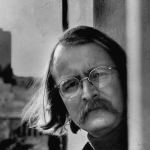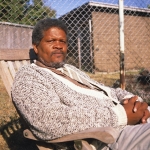Columns, arches, vaults: how he knew
The ways you promise what you lack;
And that your bodies, like your souls,
Always slip from our grasping hands.
Space is such a lure . . . Swift to disappoint,
As they raise and topple clouds, the sky's
Architects still offer more than ours,
Who only build a scaffolding of dreams.
He dreamed, all the same; but on that day,
He gave a better use to beauty's shapes:
He understood that form means to die.
And this, his final work, is a coin
With both sides bare. He made in stone,
Of this great room, the arrow and the bow.

















Comment form: